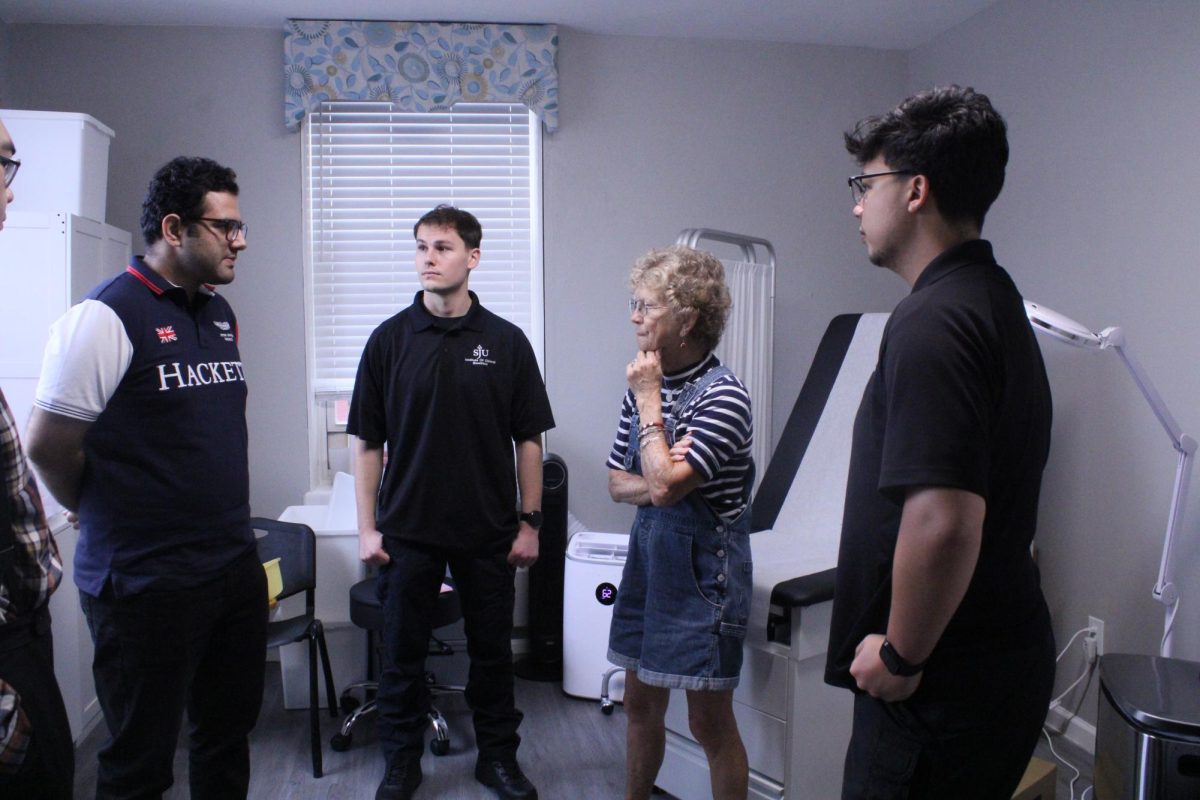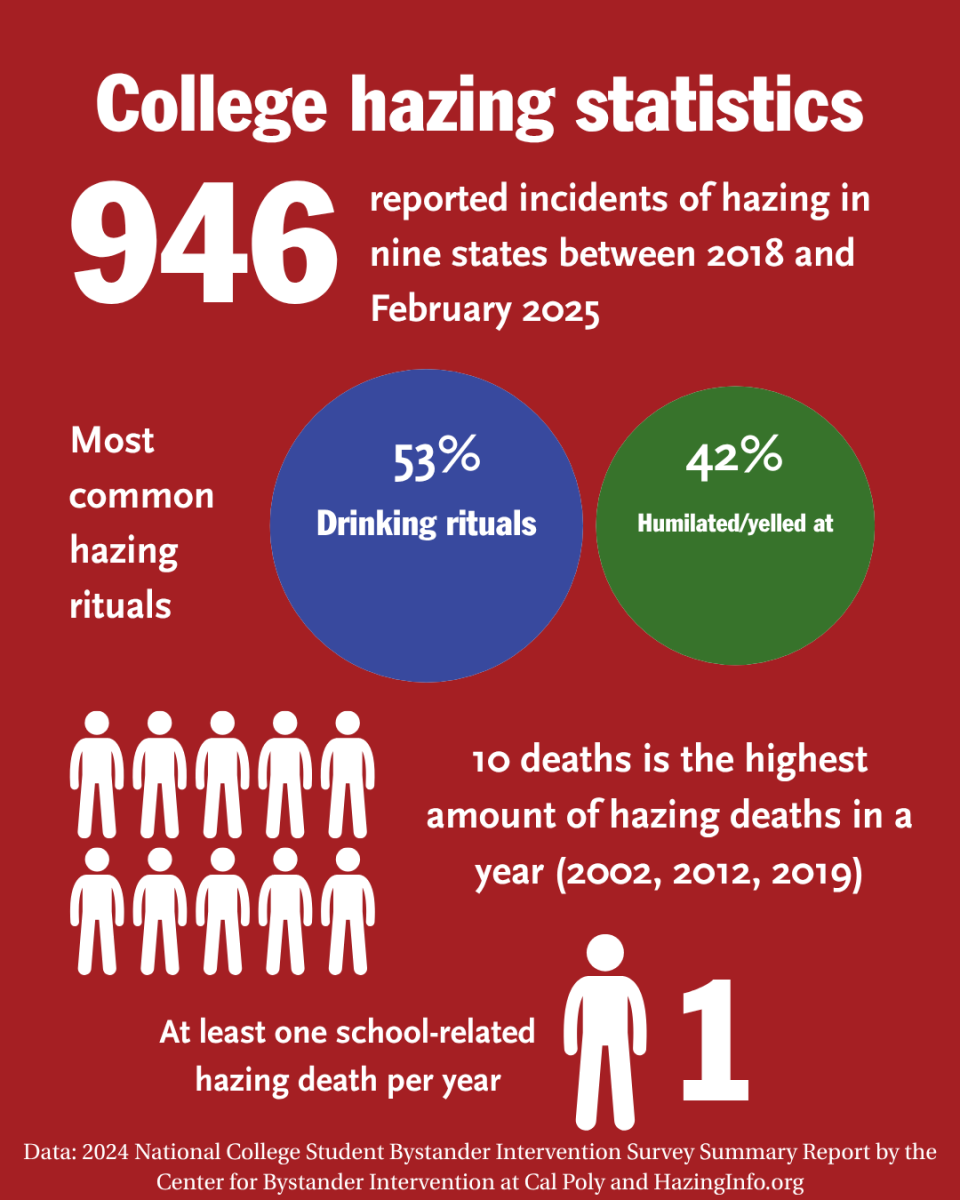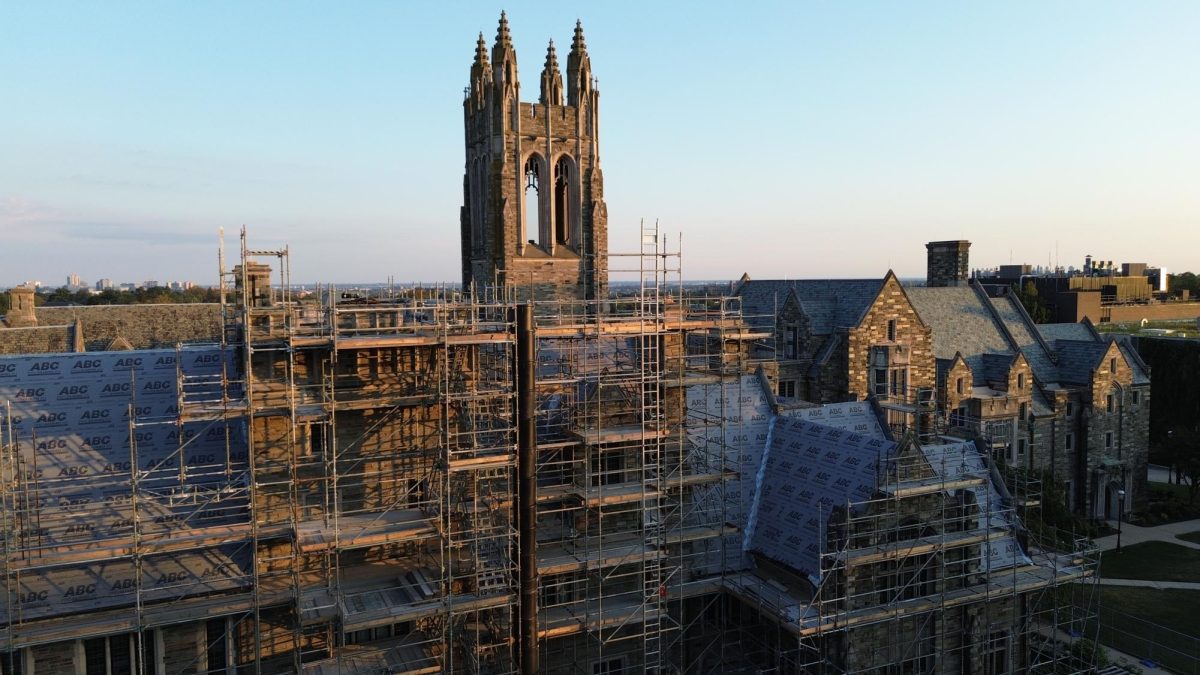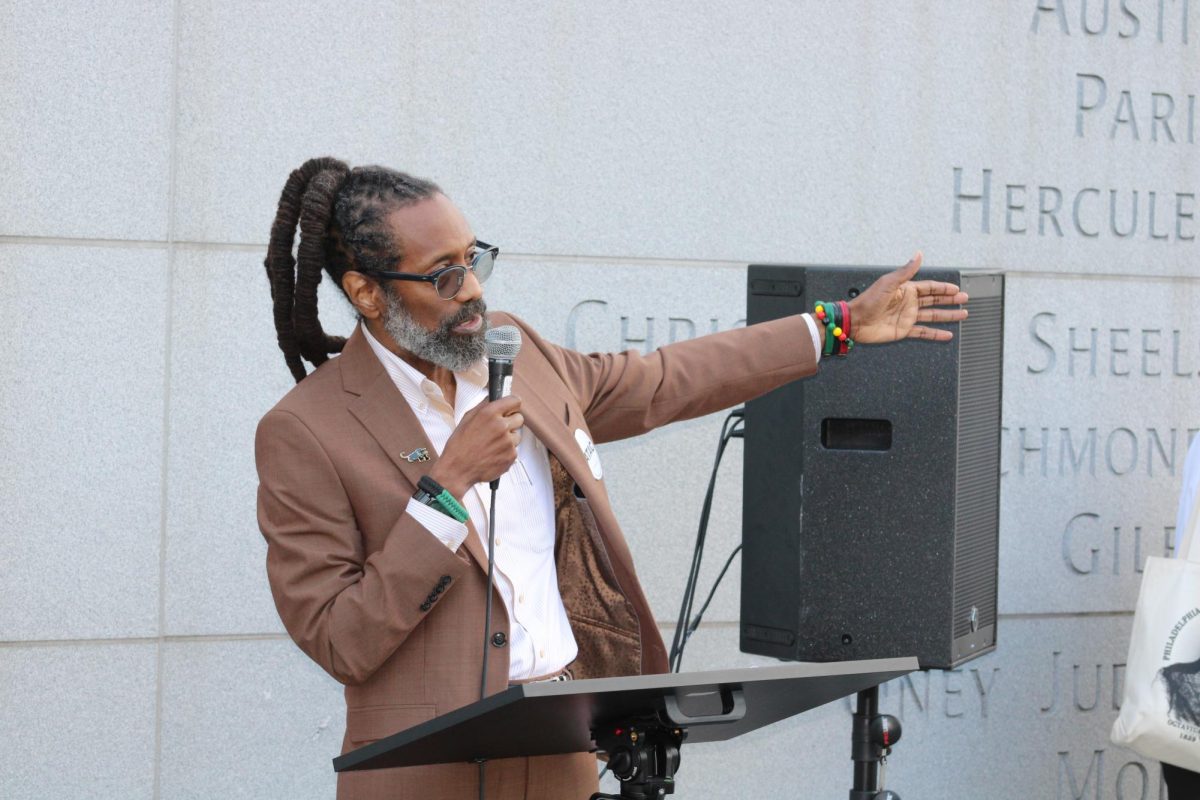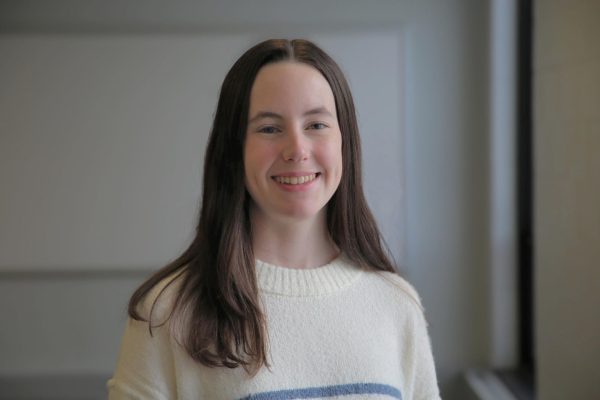St. Joe’s is offering voluntary tenure buyout and voluntary separation programs to full-time employees ahead of “more significant changes” for the university in the near future, according to a March 24 email to faculty and staff from University President Cheryl McConnell, Ph.D.
These changes will involve “comprehensively reimagin[ing] our structures, operations and programs,” McConnell said in the email.
The TBO and VSP are available to all full-time employees — including tenured faculty, tenure-track faculty, non-tenure-track faculty and staff — who will have been employed by the university for at least three years by the end of the semester, according to a follow-up email to faculty and staff that same day by Allyson Mullin, vice president of Human Resources.
Programs like this give employees “the most agency in their choice possible,” McConnell said in a March 28 interview with The Hawk, adding that the university does not have a target number of employees who will apply for the programs.
“There is no target, there is no desired number,” McConnell said. “We organize around what is happening, and it will feed into a very thoughtful reorganization for the university.”
The plans for reorganization come in the wake of two acquisitions in three years, McConnell said. St. Joe’s merged with the University of the Sciences in June 2022 and the Pennsylvania College of Health Sciences in January 2024.
These acquisitions contributed to the university’s deficit, McConnell told The Hawk.
“We acquired two financially struggling institutions, and we brought them over as is,” McConnell said. She did not share the size of the deficit and did not confirm if the acquisitions are the two most major contributors to the deficit.
“[We bolted those institutions] on to existing structures within the university,” McConnell said. “That’s not ideal for the future, but it was really important for us to stabilize the student experience and allow time for systems integration.”
With systems and student experience integrations essentially complete, McConnell said it’s time to move forward with a “one-university mindset,” which aims to integrate areas with similar functions across the university’s three campuses. McConnell said some reorganization has already occurred, such as combining Marketing and Communications with Enrollment Management.
“Those are the kind of reorganizations that we need to do university-wide, instead of having separate units throughout the university doing the same function,” McConnell said.
University officials do not currently know what those reorganizations may look like, McConnell said, but it “doesn’t necessarily mean academic reorganizations.”
“If that happens as part of this, it would be led by the academic unit in consultation with the deans and the chairs,” McConnell said. “This isn’t hidden language for program eliminations or anything related to that.”
Eric Pelletier, DPT, clinical associate professor and president of Faculty Senate, said while buyouts can be stressful for employees, he sees them as a “first step” to help the university overall before it moves on to the next step of restructuring.
“It’s unfortunately necessary. It’s an uncomfortable thing for faculty, but we’re in an environment in higher education where there’s a lot of unknowns,” Pelletier said. “What I do think is a good thing, is St. Joe’s is positioned well right now.”
The current TBO and VSP programs are much more widely offered than in previous years. In 2020, a VSP was offered to staff who had been employed by the university for at least 10 consecutive years and to tenured or tenure-track faculty who had been employed by the university for at least 15 consecutive years. In 2024, a VSP program was offered to all tenured faculty.
This year, all full-time faculty and staff who have been employed by the university for at least three years are eligible, including employees from USciences or PA College. Other employees are not eligible, including adjunct faculty, part-time staff and employees in grant- or externally-funded positions, according to Mullin’s March 24 email.
Julie Wollman, Ph.D., professor of practice in higher education and associate dean for executive-format programs at the University of Pennsylvania’s Graduate School of Education, said such a broad offering is “unusual,” but so is undergoing two mergers.
Tenure buyouts are generally offered either when a university faces low enrollment (overall or in specific programs), or when a university feels it has more employees than it needs to meet the needs of students, Wollman said.
“It sounds like there’s a real desire to save a lot of money and to reduce the number of employees,” Wollman said of St. Joe’s programs.
Wollman added that buyouts do not necessarily indicate a financial struggle, and can be a “very smart strategic move” for many universities.
Universities are also factoring the uncertain future of higher education into their plans, especially in terms of enrollment, Wollman said.
“We know that the number of traditional high school students is declining significantly in our region, and so enrollment is not going to grow unless St. Joe’s looks to others,” Wollman said.
Nationwide, higher education is approaching the demographic or enrollment cliff, which is an anticipated drop in the number of 18-year-olds attending college out of high school due to a decrease in birth rates since 2008, according to a report in the Department of Education’s Education Resources Information Center.
A December 2024 report from the Western Interstate Commission for Higher Education found that the “total number of high school graduates is expected to peak in 2025 and then decline steadily through 2041,” corresponding with lower enrollment numbers for colleges and universities.
Pelletier said the TBO and VSP programs may be a preemptive response to the demographic cliff.
“We have to plan for the future and do it before it’s too late,” Pelletier said. “This is being done to be proactive, is the way I feel the administration is handling it. I think that’s a good thing.”
The upcoming changes to St. Joe’s are reflective of the constantly shifting landscape of higher education, McConnell said.
“Our St. Joe’s experience is so important. It’s care of the individual. It’s care of the students,” McConnell said. “The thought that the way we are organized now is the only way we can deliver that [St. Joe’s experience] is something that is not respectful of the history of higher education and the history of Jesuit higher education. … We are constantly evolving and meeting the moment, whatever the moment is.”
Hannah Pajtis ’26 contributed to this story.















































